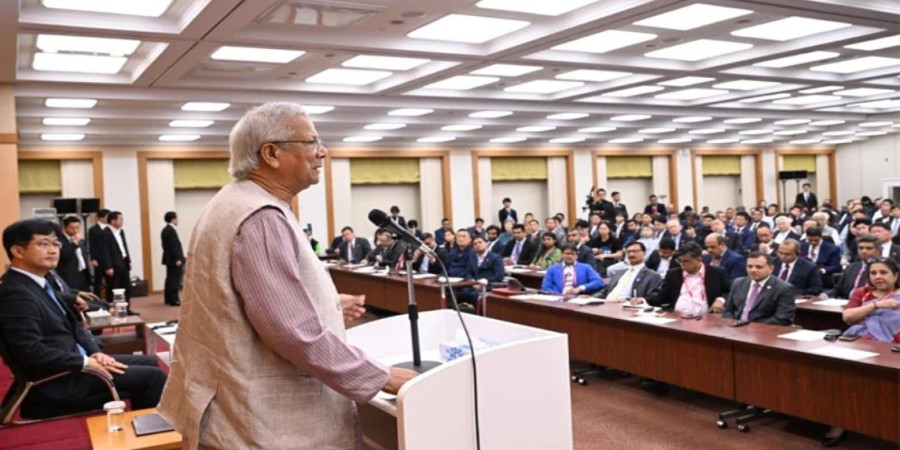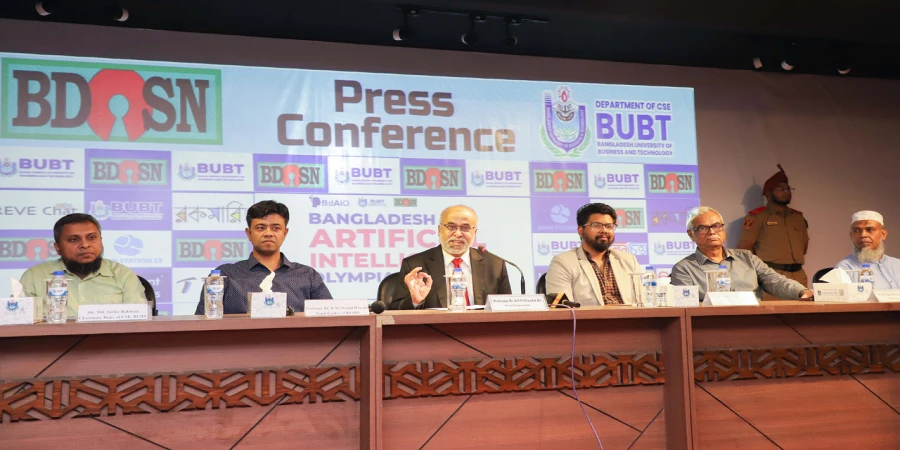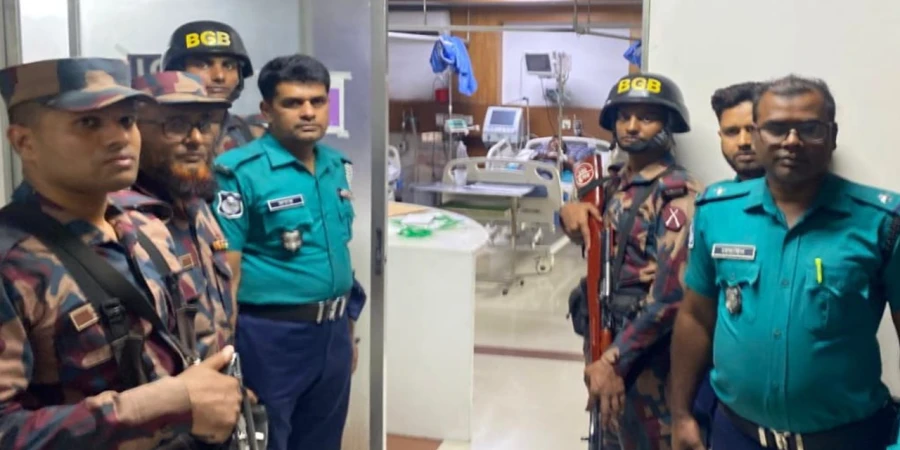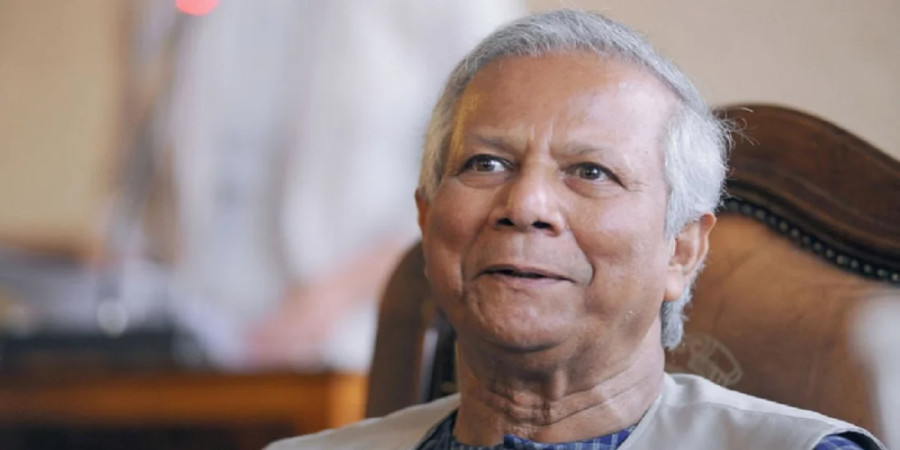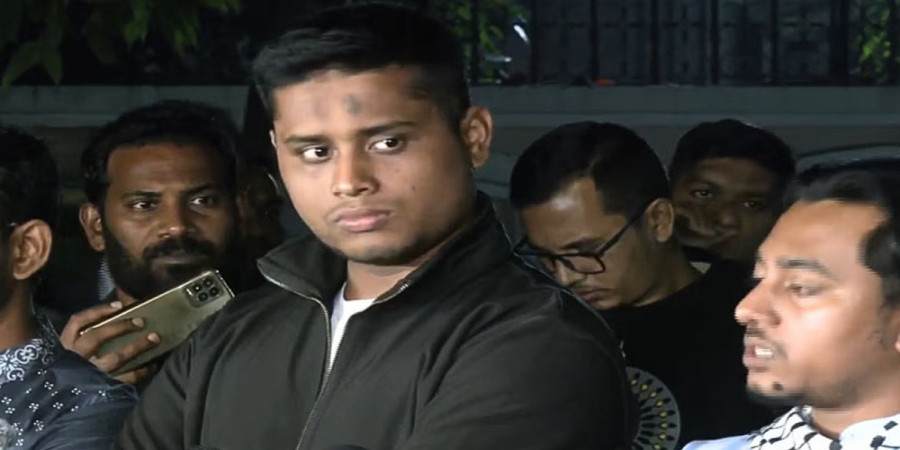
ছবি: Hassnat Abdullah speaks to the media after the meeting with the Chief Advisor. Photo: Taken from the video.
Following a meeting with Dr. Muhammad Yunus, the Chief Advisor of the interim government, Hassnat Abdullah, the leader of the Anti-Discrimination Student Movement, stated that Bangladesh would not compromise on its sovereignty and territorial integrity. The meeting, which took place on Tuesday evening, focused on the nation’s stance against India’s actions and the country’s political future.
Hassnat voiced strong concerns over India's alleged promotion of communal tensions, stating that the country has been spreading divisive narratives that contradict the inclusive and harmonious image of Bangladesh. He emphasized that it is crucial for Bangladesh to present itself as a nation of unity and peace to the international community. The student movement leader assured the Chief Advisor that they would support the interim government in its efforts to foster national unity, acknowledging the government's role in addressing issues of social inequality.
Reflecting on the political landscape, Hassnat stressed the importance of maintaining the unity that led to the fall of the Awami League government on August 5. He noted that this unity was a key factor in securing the nation’s progress and preserving its democratic principles. In his remarks, he criticized India for viewing Bangladesh only through the lens of the Awami League, which, according to him, has hindered the development of direct relations between the people of both countries.
Furthermore, the student movement leader called for transparency regarding the “fascist” government agreements made with India, specifically concerning the controversial and secretive deals. Hassnat demanded that these agreements, including issues related to border killings such as the incident involving Felani, be brought to light for the public to understand. He called for full disclosure of all border-related killings and an end to impunity for such actions.
In response to these concerns, Dr. Yunus, the Chief Advisor, reiterated his commitment to national unity and dialogue, which has been a cornerstone of the interim government’s approach. In a press briefing held earlier in the day, Shafiqul Alam, the Press Secretary to the Chief Advisor, revealed that Dr. Yunus would continue his efforts by engaging with the leaders of major political parties and religious leaders over the coming days to discuss ways of ensuring lasting unity and stability for the country.
The student movement's demands come at a time when tensions over India’s perceived influence in Bangladesh have been rising. The movement argues that stronger efforts must be made to secure the country’s independence and protect its sovereignty against external pressures, especially from its larger neighbor.
The discussions between the student representatives and Dr. Yunus reflect ongoing concerns over political autonomy and the preservation of national dignity in the face of regional geopolitics. As the interim government continues its efforts to promote unity, these conversations remain crucial to shaping the direction of Bangladesh’s political future.
repoter



